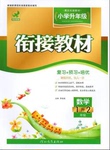题目内容
【题目】假定英语课上老师要求同桌之间交换修改作文,请你修改你同桌写的以下作文。文中共有10处语言错误,每句中最多有两处。每处错误仅涉及一个单词的增加、删除或修改。
增加:在缺词处加一个漏字符号(∧),并在其下面写出该加的词。
删除:把多余的词用斜线(\)划掉。
修改:在错的词下划一横线,并在该词下面写出修改后的词。
注意:1.格式正确, 且每处错误及其修改均仅限一词;
2. 只允许修改10处,多者(从第11处起)不计分。
I still remember the first day I come to this new school. Everything was new to me,what made me realize I was no longer a little child. I had to depend on me. Luckily,I made several good friend. Their interests were similar with mine. I had great English teacher,Maggie. She let me know the important of English. So I decided to learn English hardly. Although it was very difficult at first,but under her instruction,I made rapidly progress. Just as the old saying goes,“Where there is a will,there is a way.”
【答案】第一处:come→came。
第二处:what→which
第三处: me→myself
第四处:friend→friends
第五处: with→to
第六处: great前加a
第七处: important→importance
第八处:hardly→hard
第九处:去掉but
第十处: rapidly→rapid
【解析】
本文是一篇记叙文,作者回忆了自己刚上新学校时的情景,一切都很陌生,幸运的是他交到几个兴趣相同的好朋友,并在英语老师的指导下努力学习英语。
第一处:考查时态。句意:我还记得我第一天来到这所新学校的情景。根据“the first day”可知,陈述的过去的事情,用一般过去时,故come改为came。
第二处:考查非限定性定语从句。句意:一切对我来说都是新的,这让我意识到我不再是个小孩子了。此处为非限定性定语从句,指代前面整个主句内容并在从句中作主语,用关系代词which,故what改为which。
第三处:考查反身代词。句意:我必须依靠我自己。主语和宾语指同一事物,根据句意可知此处表示“我自己”,故me改为myself。
第四处:考查名词的数。句意:幸运的是,我交了几个好朋友。friend是可数名词,several修饰可数名词复数,故friend改为friends。
第五处:考查固定短语。句意:他们的兴趣和我的相似。be similar to表示“与……相似”,故with改为to。
第六处:考查冠词。句意:我有一位很棒的英语老师,玛吉。teacher是可数名词,此处要用不定冠词泛指“一位老师”,great的发音以辅音音素开头,故great前加a。
第七处:考查名词。句意:她让我知道了英语的重要性。作动词know的宾语用名词,冠词修饰名词也是提示,故important改为importance。
第八处:考查hard与hardly的区别。句意:于是我决定努力学习英语。hardly表示“几乎不”,hard表示“努力地”,故hardly改为hard。
第九处:考查连词。句意:尽管一开始很困难,但在她的指导下,我进步很快。前面已经有了Although,后面不能再用but,故去掉but。
第十处:考查形容词。句意同上,修饰名词 progress用形容词,故rapidly改为rapid。

 鹰派教辅衔接教材河北教育出版社系列答案
鹰派教辅衔接教材河北教育出版社系列答案